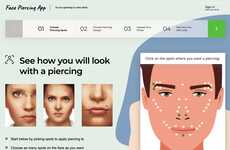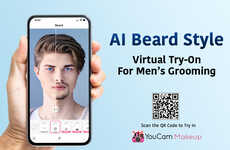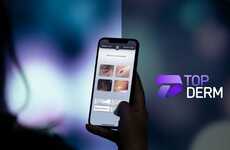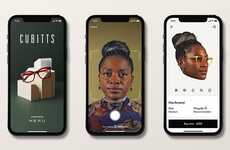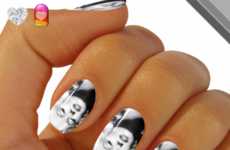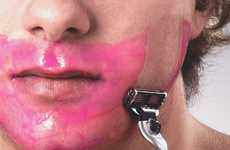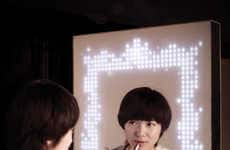
Digital Surgeon Lets Users Perform Their Own Plastic Surgery
Wes Walcott — October 6, 2012 — Tech
References: simoneferracina & psfk
Using speculative augmented reality software, Digital Surgeon gives users the opportunity to create alternate versions of their own face.
The concept was created by New York based designer Simone Ferracina, and the software works by first scanning a persons body in great detail to generate a 3D baseline model for the mapping of surgeries. Then, the user can choose a specific surgical procedure or collection of surgeries to perform. Finally, the surgery is broadcast ro-optoelectronic lenses that are prompted by proximity and relayed in real-time to the viewer's field of vision.
Whether you're interested in enhancing or deforming the way you look, Digital Surgeon empowers you to control the appearance of your facial features and perhaps give you some insight into actual process of plastic surgery.
The concept was created by New York based designer Simone Ferracina, and the software works by first scanning a persons body in great detail to generate a 3D baseline model for the mapping of surgeries. Then, the user can choose a specific surgical procedure or collection of surgeries to perform. Finally, the surgery is broadcast ro-optoelectronic lenses that are prompted by proximity and relayed in real-time to the viewer's field of vision.
Whether you're interested in enhancing or deforming the way you look, Digital Surgeon empowers you to control the appearance of your facial features and perhaps give you some insight into actual process of plastic surgery.
Trend Themes
1. Augmented Reality Plastic Surgery - The rise of software that allows users to create alternate versions of their own face could disrupt traditional plastic surgery procedures by giving people more control over the process.
2. Self-administered Cosmetic Procedures - The emergence of facial feature formation apps could disrupt the beauty industry by enabling individuals to perform personalized procedures themselves.
3. Virtual Body Scanning - The use of 3D baseline models for mapping surgeries could disrupt various industries, including fashion and health, by providing more accurate and personalized solutions for individuals.
Industry Implications
1. Plastic Surgery - Digital Surgeon's software could disrupt the plastic surgery industry by offering an alternative method for individuals to control and alter their facial features.
2. Beauty - Facial feature formation apps could disrupt the beauty industry by allowing individuals to perform personalized cosmetic procedures at home, without the need for professionals.
3. Healthcare - The virtual body scanning technology used by Digital Surgeon and similar companies could disrupt the healthcare industry by enabling more accurate and personalized surgeries for individuals.
3.1
Score
Popularity
Activity
Freshness

